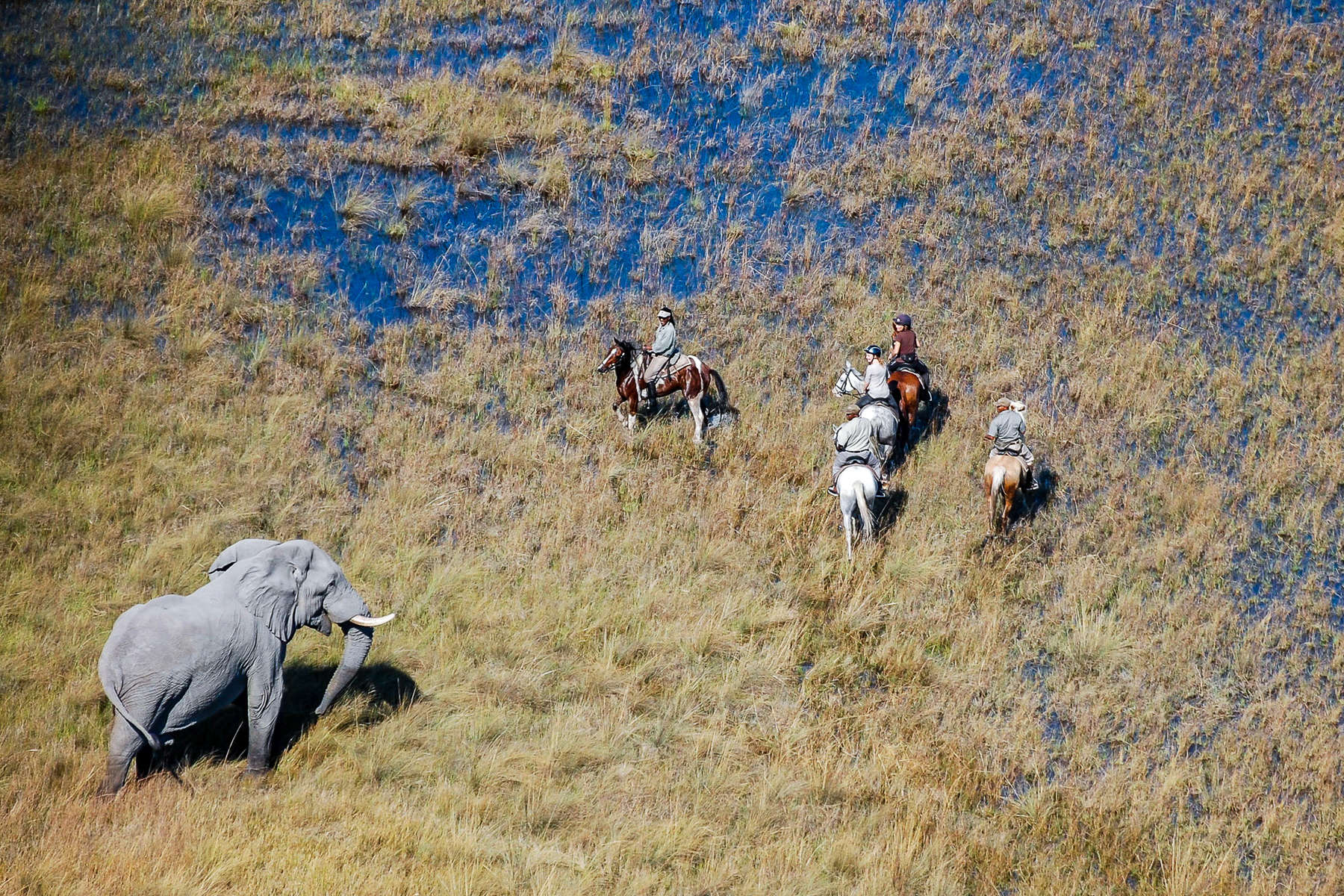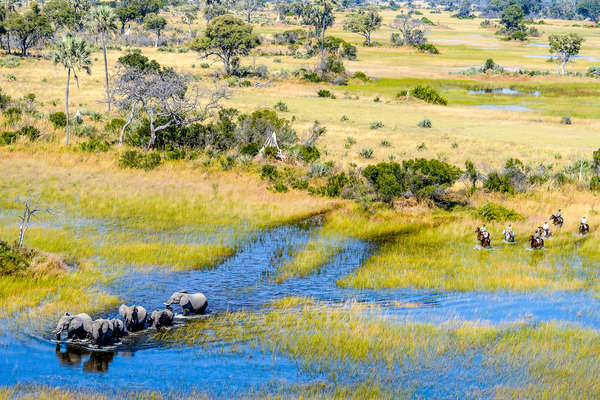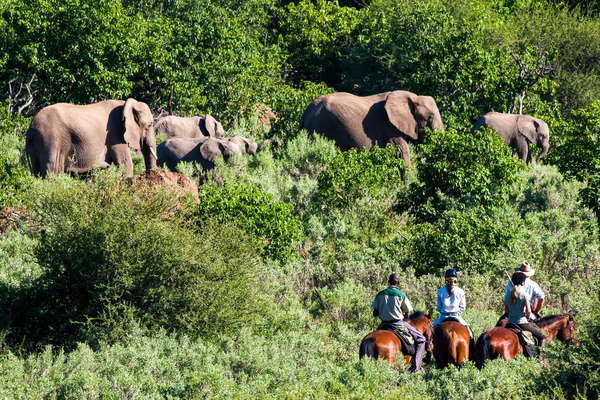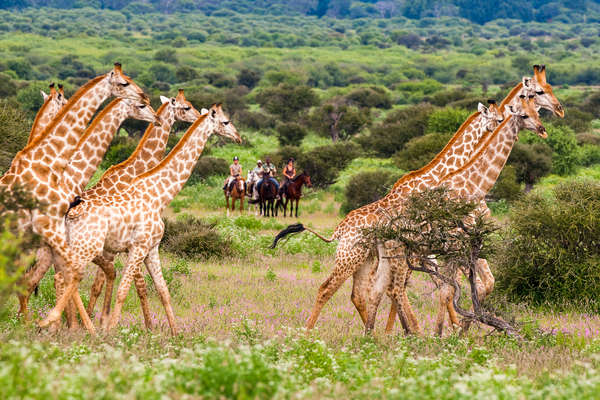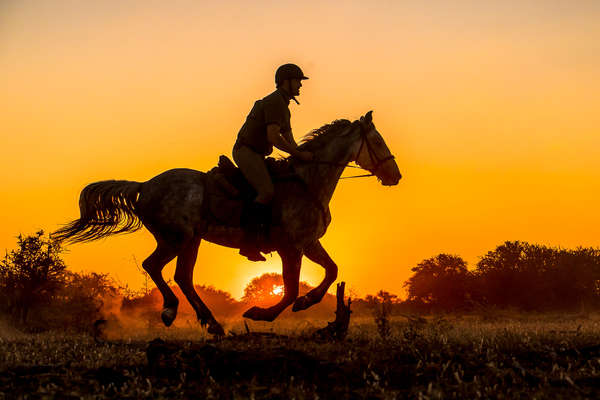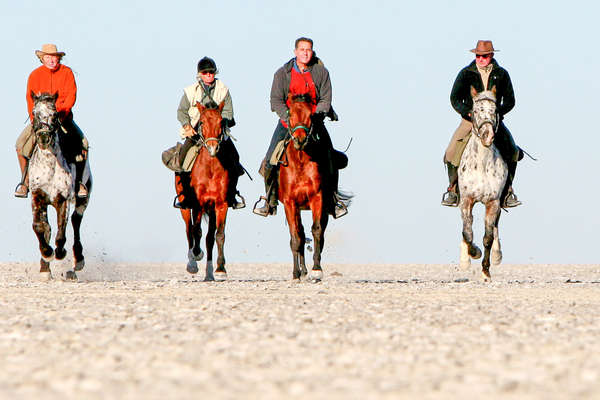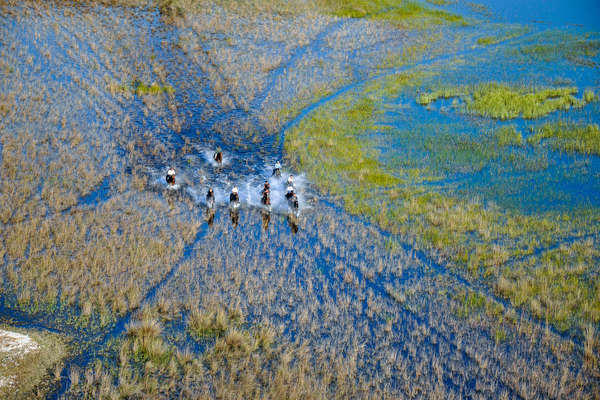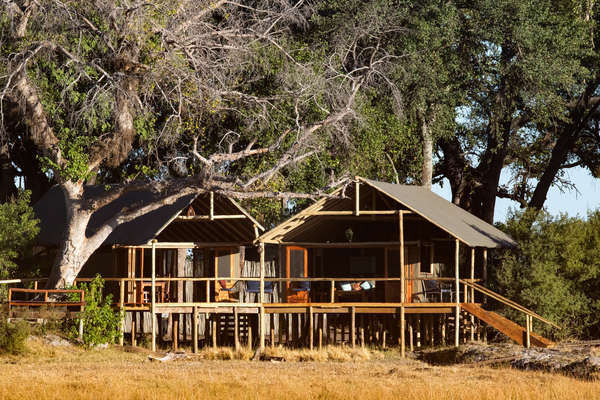Please refer to your home country's Foreign Office website for up-to-date information. This section predominantly refers to UK citizens, and advice can vary depending on your nationality. Although we endeavour to keep this section updated, requirements can change quickly, and your home country's Foreign Office website takes precedence.
To enter Botswana, a passport valid for at least six months is required by British, Australian, Canadian, USA and all other EU nationals. Outgoing travel documents and sufficient funds are also required. We recommend having two blank facing visa pages in your passport for the official stamps.
Visas are not required by British, Australian, Canadian, USA or other EU nationals for stays in Botswana of up to 90 days.
Visas are also not required by transit passengers, provided they are continuing their journey by the same or first connecting aircraft, and do not leave the airport.
Nationals of countries not listed above are advised to contact the high commission/embassy to check visa requirements.
Visa note:
Those nationals who do require a visa for Botswana must include a copy of their travel itinerary with their application, along with a letter of support from their intended host and return visa or residence permit from his/her country of residence.
Travel to or from South Africa
If you are planning to enter South Africa before or after you visit Botswana, you should refer to the travel advice for South Africa.
Travelling with children
The Botswana government has introduced new immigration rules from 1 October 2016. Children (under 18 years of age) who are travelling into or through Botswana must provide a certified copy of their full unabridged birth certificate as well as a valid passport (an abridged (short) birth certificate won’t be accepted).
If the child is travelling with one parent, with another adult or unaccompanied, the parent or parents who aren’t present will need to provide an affidavit giving their consent for the child to travel. For more information please contact the Botswana Embassy.
Travelling with children via South Africa
If you’re transiting through South Africa with children, see our South Africa travel advice page for information and advice about the documents you’ll need to carry.
Addresses of consulates
Botswana High Commission
6 Stratford Place
London W1C 1AY
Tél. : (020) 7499 0031
Fax : (020) 7647 1000
There are no vaccinations legally required to travel to Botswana from the UK, however, you need a yellow fever vaccination if you have travelled to a country (7 days or less before entering Botswana) where that disease is widely prevalent.
You should check with your doctor who has access to the most up-to-date information but the following vaccinations are usually recommended - Diphtheria, Tetanus and Polio (DTP) together with Hepatitis A and typhoid.
If you are staying longer than 3 months or have a particular risk you might consider a rabies vaccination. Vaccination against Tuberculosis as well as Hepatitis B are also sometimes recommended for stays longer than 3 months.
Malaria is prevalent in the country, but mainly during the warm and wet season and particularly in the northern half of the country. The south is generally considered lower risk. Don't underestimate this tropical disease and take precautions. Buy repellent (preferably with 50% DEET) and sleep under a net and speak to your doctor about anti-malarial medication.
It is a condition of your booking with Equus Journeys that you have travel insurance which covers you for the riding activities to be undertaken. Your travel insurance should cover you for medical expenses and repatriation. Your guides will require your travel insurance details before they allow you to ride and may refuse to let you ride if you cannot provide them. You should take your insurance documents with you.
220-240 volts AC, 50Hz. 15- and 13-amp plug sockets are in use. Plugs used are British-style with two flat blades and one flat grounding blade, or South African style with two circular metal pins above a large circular grounding pin.
Pula (BWP; symbol P) = 100 thebe.
Notes in denominations of P100, 50, 20 and 10.
Coins in denominations of P5, 2 and 1, and 50, 25, 10 and 5 thebe.
It is not necessary to change money into local currency for any of our Botswana rides - they accept GB Pounds, Euro, US Dollars and South African Rand.
There are very few public phone boxes. The country calling code to Botswana is 267. To make an international call from Botswana, the code is 00.
Mobile phone roaming agreements exist with international mobile phone companies. Coverage is average in the major towns but you are unlikely to get any signal at all when in remote camps.
Time zone: GMT + 2hr
